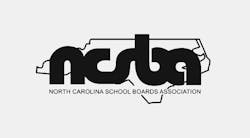North Carolina school districts say state owes them $730 million
A group of North Carolina school districts have filed a lawsuit in an effort to force state officials to abide by a 10-year-old court decision ordering them to pay the districts about $730 million that has been improperly withheld.
The Raleigh News & Observer reports that the North Carolina School Boards Association and 20 school boards want a judge to order the state to meet its state constitutional obligation and provide the $730 million.
A judge ruled in 2008 that the state must turn over $747.9 million in civil fines that should have been given to public schools over a nine-year period. But, the association says, only $18 million has provided so far.
“The plaintiffs did not want to file this lawsuit,” says attorney Rod Malone. “But after 10 years of unsuccessful attempts to collect on the judgment, or to reach an amicable settlement of the matter, the plaintiffs had no choice.”
Under the terms of the 2008 court order, the money can be used only for technology and would be split among all of the state’s school districts based on how many students they have.
The Wake County and Charlotte-Mecklenburg school systems—the state's largest two districts—would each be entitled to around $70 million.
The primary defendants in the lawsuit are the state agencies that owe the money. But representatives of the School Boards Association say they know that it will be up to the General Assembly to find a way to come up with the money.
The North Carolina State Constitution requires that money from fines levied by the state go to public schools.
In 1997, state lawmakers created a fund to collect money from civil fines and forfeitures that would be turned over to schools for acquiring technology. But the state excluded penalties levied for not paying state taxes, fines paid by overweight trucks and parking tickets issued at state universities.
In 1998, the School Boards Association and several school boards sued to get the fine money that had been excluded. In 2005, the state Supreme Court ruled in favor of the school districts and sent the case back to a lower court to determine how much money was owed.
About the Author
Mike Kennedy
Senior Editor
Mike Kennedy, senior editor, has written for AS&U on a wide range of educational issues since 1999.
